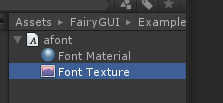

The group discusses how to think about the metaverse, what's at stake for companies, why investors are so excited, AR and VR applications, the size of the virtual economy, Robux vs crypto, and more.


Much like $HACK, which also benefited from being the right idea at the right time, META is fast on its way to becoming a billion-dollar ETF-mostly because of a big news event.Įric and Joel explore the metaverse-and the investing opportunities it could bring-with Matthew Ball, managing partner of EphyllionCo and the brain behind the ETF Matt Kanterman, who covers gaming as a senior analyst for Bloomberg Intelligence and Rebecca Sin, an ETF analyst for Bloomberg Intelligence. Since then, the ETF-which holds companies such as Nvidia, Roblox, Unity, Microsoft, and, well, Meta-has seen assets grow 6-fold and volume jump 50-fold. The day that Mark Zuckerberg announced he was changing the name of Facebook to Meta Platforms, the Roundhill Ball Metaverse ETF ($META) found a new trajectory. The approach means higher fees than most ETF-based portfolios, but as the group discusses, inflation and rising rates mean investors might want to consider reconsidering their toolbox. Together, the two pioneered the concept with a widely-circulated research paper (which you can find at ) and an open-source model portfolio that allows anyone to implement the concept. On this episode, Eric and Joel speak with Corey Hoffstein, chief investment officer of Newfound Research, and Rodrigo Gordillo, president and portfolio manager of ReSolve Asset Management. (Oh, and by the way, that frees up a chunk of your portfolio for other exposures so you can have your cake and eat it, too….or at least that's what the backtest shows.) Investors get the standard 60/40 allocation, only it’s leveraged in a way to add diversification and protection. Enter “return stacking,” which attempts to solve this conundrum. Yet investors fear the current inflationary environment could push both down. And why not? It's worked really well for a long time, especially the past decade when both stocks (the 60) and bonds (the 40) went up.


 0 kommentar(er)
0 kommentar(er)
